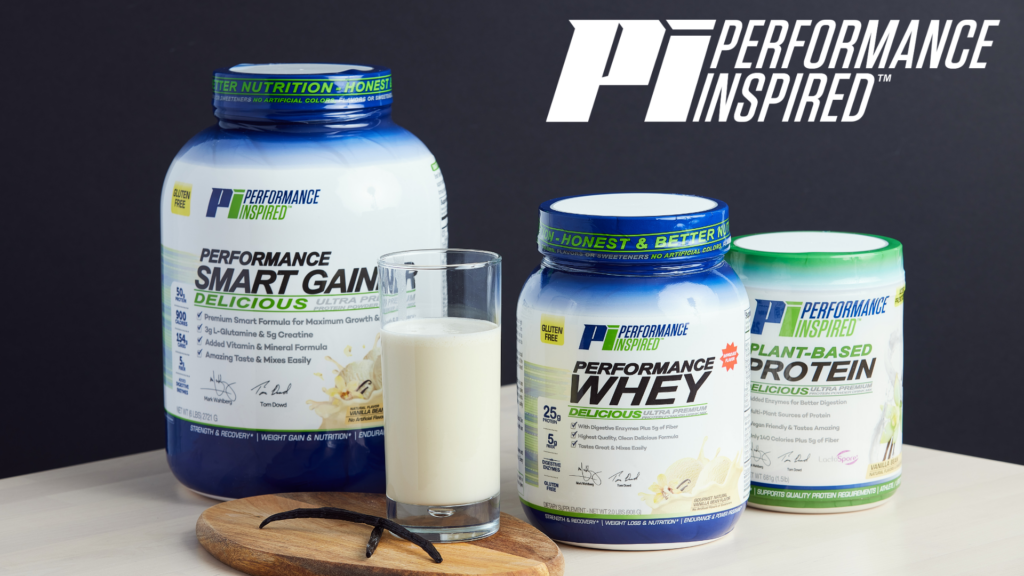Adding More Protein to Your Diet Is Easy!

Protein: We all need it, but many of us may not be getting enough each day. Did you know that there are more than 10,000 types of protein and that it is found in all parts of your body, including your muscles, tissues, organs, bones, hair, and skin?
Protein is essential to optimal health. And according to WebMD, protein is a “critical part of the processes that fuel your energy and carry oxygen throughout your body in your blood. It also helps make antibodies that fight off infections and illnesses and helps keep cells healthy and create new ones.”
Healthline penned an article entitled “10 Science-Backed Reasons to Eat More Protein” that discussed the many reasons that protein is important for our bodies. Having the proper amount of protein in your body:
- increases muscle mass and strength
- helps strengthen bones
- reduces late-night cravings
- boosts metabolism
- helps burn fat
- helps maintain weight loss
- helps your body repair itself after an injury
With that understanding, we know you will want to assess your protein intake and determine whether you are getting enough. But how will you know if you are deficient in protein? UCLA Health advises to watch for the following signs (and if you are really worried, or symptoms persist, consult your doctor): brittle hair and nails, regularly feeling weak or hungry, frequently getting sick, mood changes or trouble thinking due to fluctuating blood sugar, muscle weakness, and stress fractures.
How much protein should you be eating each day? According to UCLA Health, you should eat “0.36 grams of protein per pound of body weight” per day. That means if you weigh 180 pounds, you should eat 64.8 grams of protein per day. If you weigh 150 pounds, you should eat 54 grams. Further, your protein intake should be spread throughout the day, as your body can only absorb so much protein at once. UCLA recommends 25-30 grams at one sitting.
If you feel that you are not getting enough protein, there are some easy ways to add more into your daily meals or snacks. These lifestyle changes are easy to implement and can even be fun, as you begin to try new foods and explore ways to make eating more enjoyable.
Start off your day with protein. Replace a sugary breakfast with eggs, quinoa, cottage cheese, or Greek yogurt.
Later, add a Performance Inspired protein bar to your day! With 20 grams of protein, these delicious bars offer a great midday boost.
Instead of chips or a candy bar, snack on a handful of almonds when you’re hungry.
For those who want to bulk up or who may be busy or who don’t have time for meals, try Performance Inspired’s protein powder. We offer several choices, including Diet & Energy Ripped Whey, Isolate Whey, and Performance Whey Protein, each of which has 25 grams of protein. We also offer a Plant-Based Protein, which has 20 grams of protein and does not contain whey. All of these powders come in delicious flavors that can be easily mixed with your favorite milk product (dairy or non-dairy) to create a healthy snack or on-the-go meal when you don’t have time to make something.
For dinners, add salmon, tuna, mahi-mahi, trout, or cod to you weekly meal plan. These fish are high in protein and other nutrients and serve as a healthy replacement for red meats.
Drink protein water. Yes, you read that right. Performance Inspired offers four delicious flavors of its Ready 2Go protein water—island fruit punch, watermelon blast, blueberry lemonade, and rainbow sherbet. Each has 16 grams of protein. This makes it incredibly simple to both quench your thirst and increase your protein intake.
At all meals, skip the white grains and stick with whole grains. Whole grain pasta and wild rice are packed with protein and are much healthier for you.
Finally, here are some foods that you may not know about that contain good amounts of protein: lentils, chickpeas, peanut butter, pistachios, chia seeds, Brussels sprouts, spirulina, tempeh, Parmesan cheese, green peas, spinach, and broccoli. Add them as side dishes or as part of your main meal on a regular basis.
At Performance Inspired, we want to help you feel and look your best. If you have been feeling unwell or lethargic, evaluate your eating habits to determine whether your protein intake is lacking. Then take some of the above steps to increase it. If a protein deficiency has been ailing you, we know you will be feeling better in no time!

